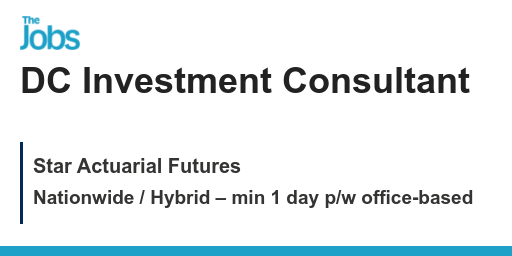
As many organizations seek to improve their productivity and reduce costs, there is an increasing demand for principal consulting. Consultants can assist organizations in implementing new technologies and expanding their reach to new markets. A bachelor's degree is usually required to become a principal consultant. However, many employers prefer applicants who have an MBA. This two-year program includes coursework and a research project. Here are some ways to get started in this industry.
The job outlook for principal consultant
Principal consultants have a generally positive job outlook, although there are many job duties. Principal consultants have a variety of job duties, including project management, managing talent and helping companies solve difficult business problems. They might also be involved in thought leadership and business growth work. They work in teams, but a principal consultant should have the ability to manage their projects and work alone. Below are three trends you need to be aware of in your career.
Education and experience: To become a principal consultant, candidates typically need a bachelor's Degree. A majority of potential principal consultants have a master’s degree in business administration, or a closely related field. Employers also appreciate candidates with experience in related fields. Some organizations prefer candidates with at least a master's degree, and a doctorate in the field is common. Principal consultants earn an average annual salary of $80630.

Education required
Principal consultant is a top-ranking management position in a consulting company. As a principal consultant, you will oversee the work of junior consultants as well as provide guidance and leadership for others in the company. To become a principal consultant, you must have several years of consulting experience and a bachelor's degree in a related field. Undergraduate studies may also qualify you for a career as a principal consultant, as they can help you develop leadership skills.
It is common for the principal consultant to recommend effective strategies to increase the company's bottom-line. They may also choose to specialize, for example in technology or healthcare. You will be different from other consultants if you have this specialized knowledge. The most common industries are finance, marketing and human resources. The type of education required will vary depending on the industry that you wish to enter. A principal consultant often has industry-specific training.
Potential earnings
A principal consultant with more experience will earn more. Clients are often attracted to principal consultants with more than 10 years experience. Principal consultants will need additional training in order to keep abreast of the latest regulatory changes and technological advances. The median annual salary for consultants is $80630. But, the highest paid executives can make more than $163470. This article describes the factors that affect earnings as principal consultants.
The median salary for a Principal consultant varies depending on where they are located and how much experience they have. ZipRecruiter says that an entry-level Principal Advisor can make as high as PS82,500 per year. A mid-career Principal Consultant can earn an average of Rs16.7 Lakhs per year. A senior Principal Advisor may make as high as $180,000 per year. In contrast, the earning potential for a principal consultant with more than 20 years of experience can exceed the national average.

Career path
A career as a principal consultant requires specific skill sets that will help you succeed in the position. Many consultants have general knowledge. However, some consultants have industry expertise to stand out from the rest. Certifications in certain areas of business are especially beneficial to aspiring principal consultants, as they will allow them to expand their knowledge and experience in those fields. These certifications are a great way for you to stand out and showcase your expertise.
The principal consultant oversees all phases of projects as well as the talents of a team. They often work on tough business problems, and they may even participate in other aspects of the firm's service offering, such as thought leadership. After being promoted to the position of principal consultant, they will be responsible for leading a firm’s strategic planning and business development work. They also need to generate new business and build client relationships.
FAQ
What type of jobs can a consultant do?
Being a consultant will require you to have a solid understanding of business strategy as well as operations. You must also understand how businesses operate and how they fit into society.
Being a consultant requires great communication skills and the ability think critically.
Consultants need to be flexible as they might be assigned different tasks at different times. They should be flexible enough to change direction quickly if needed.
They should be willing to travel extensively on behalf of their clients. They may be required to travel all over the globe for this type of work.
They need to be able and able to manage pressure and stress. Sometimes, consultants may be required to meet strict deadlines.
Consultants are often expected to work long hours. This can mean you might not always receive overtime compensation.
Which industries use consultants
There are many different types. Some are specialists in one type or another of business.
While some consultants only work for private companies, others represent large corporations.
Some consultants also work internationally and can help companies around the globe.
Do I require legal advice?
Yes! Yes. Consultants can often create contracts with clients, without seeking legal advice. However, this can lead to problems down the road. For example, what happens to the contract if the client terminates it before the consultant has completed? Or, what happens if the consultant doesn't meet the deadlines set forth in the contract?
Avoid potential legal problems by consulting a lawyer.
How does consulting differ to freelancing
Freelancers work as independent contractors and offer their services without the assistance of an agency or company. They generally charge an hourly rate depending on how long they spend on a client project. Consultants usually work for agencies or companies that employ them. Their salaries are often paid monthly, or annually.
Consultants have less flexibility than freelancers because they can control their work hours, and set their own prices. But consultants have more benefits like vacation days, health insurance and retirement plans.
What is the average price you should charge for a consulting job?
It depends on what you are offering. If you're providing services for free, there is no reason to charge anything. But if your services or products are for sale, you will need to establish prices that reflect their value.
If you offer low-quality services then you don’t have anything for sale. Why would anyone pay anything for you?
You might be able ask for a more expensive price if your services are of high quality. People recognize the value in you offering. Customers who buy multiple services from you may qualify for discounts.
What can I anticipate from my consultant
Once you select your consultant, you should expect to hear back from them within a few days. They will usually ask for information about your company, including its mission, goals, products, services, budget, etc. They will then send you a proposal that outlines the scope of work and estimates timeframe, fees, deliverables, milestones and other details.
If everything goes as planned, then both parties will agree to a written contractual agreement. The type and content of the contract will vary depending on whether the relationship is employer-employee/employer-independent contractor.
If all goes well, the consultant will start working immediately. He/she will have immediate access to your internal documents, resources, and you'll be able to access his/her skillset and knowledge.
But don't assume that anyone who is a consultant has all the answers. It takes effort and practice to become an expert in whatever field you consult. Don't expect your consultant know everything about your company.
Statistics
- Over 62% of consultants were dissatisfied with their former jobs before starting their consulting business. (consultingsuccess.com)
- According to IBISWorld, revenues in the consulting industry will exceed $261 billion in 2020. (nerdwallet.com)
- 67% of consultants start their consulting businesses after quitting their jobs, while 33% start while they're still at their jobs. (consultingsuccess.com)
- Over 50% of consultants get their first consulting client through a referral from their network. (consultingsuccess.com)
- My 10 years of experience and 6-step program have helped over 20 clients boost their sales by an average of 33% in 6 months. (consultingsuccess.com)
External Links
How To
How do you find the best consultant?
When searching for a consultant, the first thing you should do is ask yourself what your expectations are. Before you start looking for someone to work with, it's important that you know your expectations. Before you start looking for a consultant, make a list. These could include professional expertise, technical skills and project management abilities, communication skills, availability, and other things. After you have listed your requirements, it might be a good idea to ask colleagues and friends for their recommendations. Ask them what their experience with consultants was like and how they compare to yours. If you don't have any recommendations, try doing some research online. Many websites allow people to post reviews about their work experience, including Angie's List and Indeed. Look at the ratings and comments left by others and use this data as a starting point for finding potential candidates. Once you have a short list of candidates, contact them to arrange an interview. At the interview, it is important to discuss your requirements and get their feedback on how they can help. It doesn’t matter if the person was recommended to you; it matters that they understand your business goals, and can show you how they can help.